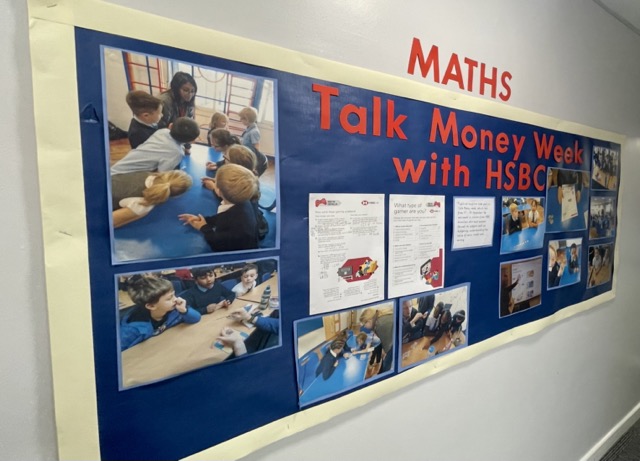Maths
"Mathematics is the music of reason."
Our commitment to mathematics education is rooted in the recognition that a strong foundation in mathematical fluency is fundamental to a child's overall academic growth and development. Our curriculum places a strong emphasis on building this foundation, allowing pupils to confidently navigate the world of numbers and mathematical concepts. We understand that mathematical fluency is not an isolated skill but a key that unlocks doors to critical thinking and complex problem-solving.
Our approach is grounded in the belief that progressive knowledge is constructed upon prior understanding. We guide our students through a journey of mathematical discovery that builds upon their existing knowledge, nurturing their ability to solve increasingly complex problems and develop robust reasoning skills. We firmly adhere to the principle that memory is the residue of thought; therefore, we teach not just for rote memorisation but for deep comprehension.
In Key Stage 1, we place a strong focus on developing a sense of number, enabling our young learners to grasp foundational mathematical concepts. As students progress to Key Stage 2, we concentrate on arithmetic skills, empowering them with the tools to tackle more advanced mathematical challenges, such as open-ended tasks and complex multi-step problems.
Our commitment to procedural knowledge is driven by the desire to reduce cognitive load, ensuring that our pupils can confidently apply mathematical principles to various contexts. This knowledge transcends mathematics into other core subjects, creating meaningful connections throughout the curriculum. For instance, in history, students analyse data and timelines; in geography, they interpret and create graphs; in science, they perform measurements and data analysis; in PE, they calculate scores and distances; in art, they explore patterns and symmetry; in religion, they investigate numerical symbolism; in design and technology, they apply precise measurements; and in computing, they delve into algorithms, coding and problem-solving.
Mathematics is not just a core subject but a cornerstone of education, bridging concepts and skills across diverse disciplines. At Leighton, we nurture mathematical fluency and problem-solving abilities to equip our pupils with essential tools for success in all areas of their academic journey and beyond.
Aims
We aim to provide the pupils with a mathematics curriculum and high quality teaching to produce individuals who are numerate, independent, inquisitive, and enquiring. We aim to equip them with the knowledge to speak confidently about mathematics by convincing themselves or others that a conjecture is true. At Leighton, we use White Rose Maths as our primary framework for delivering daily lessons. We use a mastery approach, which is a research-based teaching and learning method that meets the ambitious goals of the National Curriculum.
Pupils:
- Understand the value of a number and where it fits into the number system.
- Know by heart number facts such as number bonds, multiplication tables, doubles and halves (appropriate to age).
- Use what they know by heart to solve calculations mentally.
- Calculate accurately and efficiently, both mentally and in writing, drawing on a range of calculation strategies.
- Solve routine and non-routine problems including breaking them down into simpler steps.
- Explain their methods and reasoning, using correct mathematical terms.
- Judge whether answers are reasonable and have strategies for checking them where necessary.
- Suggest suitable units for measuring and make sensible estimates of measurements.
- Explain and solve problems from the numbers in graphs, diagrams, charts and tables.
- Develop understanding of the properties of 2d and 3d shapes and spatial awareness.
Click on this link to read the full DFE programmes of study.

